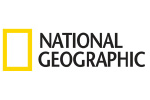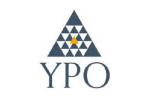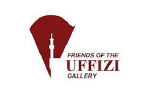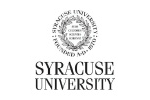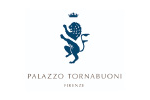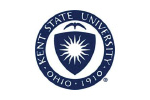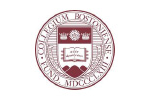









LIVE STREAM EVENT & EXCLUSIVE WEBINAR BUNDLE
“March All-Inclusive Bundle”
Presented by Dr. Rocky Ruggiero and special guests Dr. Eric Nicholson, Marco Klee Fallani, Dr. Laurinda Dixon, Dr. Marcello Simonetta, Dr. Jeremy Wasser, and Dr. Kristin Stasiowski
LIVE STREAM EVENTS | “Live Events from Italy in March”
Each event will include a 45-minute live stream followed by 15-minutes of Q&A.
EXCLUSIVE WEBINARS | “Thursdays in March”
Each webinar will include a 45-minute lecture followed by 15-minutes of Q&A.
Please note:
LIVE STREAM EVENT | “Celebrate Carnevale in Venice, Italy”
Presented by Dr. Rocky Ruggiero
After two long years, Carnevale in Venice is finally back! Join us on Martedi Grasso (Mardi Gras) IN REAL TIME DIRECT FROM VENICE and enjoy the magnificent costumes, festivities and spectacles that make Carnevale in Venice one of the world’s greatest celebrations!
The event will include a 45-minute live stream event followed by 15-minutes of Q&A.
LIVE STREAM EVENT | “Shakespeare’s Made in Italy Theater”
Presented by Dr. Eric Nicholson
With Additional Commentary by Dr. Rocky Ruggiero
Teaming up with Leonard Bernstein and Jerome Robbins in the 1950s, the late great Stephen Sondheim brought Romeo and Juliet to Manhattan’s West Side, and made the play matter more urgently than ever. For his part, Shakespeare himself had brought the two young star-crossed lovers and their tragic tale onto the 1590s London stage from various Italian sources. These are well-known stories, but many native English speakers still need to learn that Shakespeare’s theater can be called a “Made in Italy” one. For as that famous opera composer and ardent Shakespeare admirer Giuseppe Verdi understood very well, Italy, Italian literature, and Italian culture are vital for the English playwright’s drama. They are so vital that even his only play set in the England of his own time—The Merry Wives of Windsor—depends on Italian sources and role models to drive its plot and create its comic effects. Fittingly, it inspired Verdi’s final and most musically daring opera, Falstaff.
My illustrated presentation will focus on this farcical Windsor comedy featuring Falstaff the would-be lover, comparing and contrasting it to the more overtly Italian-style Much Ado About Nothing, set in Sicily (fun fact: more than half of Shakespeare’s plays have Italian settings). The use of custom-made masks and live performance samples—with a special guest appearance—will help explain such matters as Shakespeare’s response to Castiglione’s immensely popular Book of the Courtier, his adaptations and transformations of the dynamic “commedia dell’arte,” and his engagement with the key innovation of early modern European professional theater: the emergence of the actress-diva. On this note, I highlight not only Falstaff, the Merry Wives, Benedick, and Beatrice, but another dashing “Capitano” and charismatic “Prima Donna” dynamic duo who inspired Verdi, namely Othello and Desdemona. Thanks to these characters, we also will virtually visit the most admired, glamorous, and indeed mythical of all Italian Renaissance cities, Venice.
The live virtual performance will include a 45-minute performance/lecture followed by 15-minutes of Q&A.
LIVE STREAM EVENT | “Oil Painting in Tuscany”
Presented by Marco Klee Fallani
With Additional Commentary by Dr. Rocky Ruggiero
Join celebrated artist Marco Klee Fallani, direct from his studio in the heart of Chianti, Tuscany, for a live stream oil painting class. Learn the art of painting in this rich and suggestive medium from an acclaimed maestro in real time. Art will truly come to life during this extraordinary event.
The live stream will include a 45-minute oil painting demonstration followed by 15-minutes of Q&A.
LIVE STREAM EVENT | “Tortellini Making in Bologna, Italy”
Presented by Dr. Rocky Ruggiero
Join us DIRECT FROM A HISTORIC PASTIFICIO, or pasta laboratory, IN BOLOGNA to learn how to make one of Italy’s most famous types of pasta. Discover the traditional recipe for tortellini pasta and stuffing and then learn the historic technique to twist it into its iconic shape IN REAL TIME!
The live stream event will include a 45-minute lecture followed by 15-minutes of Q&A.

EXCLUSIVE WEBINAR | “Demons and Disease: Scenes from a Renaissance Pandemic”
Presented by Dr. Laurinda Dixon
with Additional Commentary by Dr. Rocky Ruggiero
The last two years have seen the COVID 19 pandemic engulf the world, destroying old traditions and creating new ones in its inexorable wake. But our experience is not unique. Similar pandemics have challenged our ancestors throughout the arc of human history. The Renaissance suffered especially from incidents of pandemic plague, including the Black Death (yersinia pestis), leprosy, and syphilis. Like Covid 19, these diseases were relentless in their spread and often fatal, often leaving survivors disfigured for life. Medical authorities were confounded. How did the plague begin? Who is most vulnerable? How can we stop its spread? What did we do to deserve such bad fortune? One of the most thoroughly documented Renaissance pandemics was Holy Fire, associated with St. Anthony, to which people of every age and occupation were equally vulnerable. Multiple works of art record the cause, symptoms, and cures of this pervasive and horrific disease, as perceived in 15th-century contemporary wisdom. This is the story of how an earlier era experienced both fear and hope when faced with the inevitable progress of a horrific disease – how ultimately human ingenuity and Christian faith became united in a single purpose.
Laurinda Dixon is a specialist in northern European Renaissance art. Currently retired, she served as the William F. Tolley Distinguished Professor of Teaching in the Humanities at Syracuse University for many years. Her scholarship considers the intersection of art and science – particularly alchemy, medicine, astrology, and music – from the fifteenth though the nineteenth centuries. She has lectured widely in both the USA and Europe, and is the author of many articles, reviews, and eleven books, including Perilous Chastity: Women and Illness in Pre-Enlightenment Art and Medicine (1995), Bosch (2003), and The Dark Side of Genius: The Melancholic Persona in Art, ca. 1500-1700 (2013). Laurinda holds a Ph.D. in art history from Boston University, as well as a degree in piano performance from the Cincinnati Conservatory of Music. She currently resides in Cincinnati, Ohio.
The webinar will include a 45-minute lecture followed by 15-minutes of Q&A.

EXCLUSIVE WEBINAR | “Medici Magnificence, Money, and Monsters”
Presented by Dr. Marcello Simonetta
with Additional Commentary by Dr. Rocky Ruggiero
The Medici had two popes and two dukes, before becoming dukes of Florence. In this exclusive webinar, Marcello Simonetta provides an overview of their spectacular successes and failures and traces the evolution of Medici royalty.
Marcello Simonetta earned his Ph.D. at Yale University. He has taught for several years in the US and in France. He currently lives in Florence where he is a senior fellow of The Medici Archive Project. He is the author of ten books. His Montefeltro Conspiracy (Doubleday 2008) has been translated into ten languages.
The webinar will include a 45-minute lecture followed by 15-minutes of Q&A.

EXCLUSIVE WEBINAR | “The Medical History of the Medici: Wealth, Power, Disease and Death”
Presented by Dr. Jeremy Wasser
with Additional Commentary by Dr. Rocky Ruggiero
From 1397 to 1743, the Medici family was the most powerful family in Florence and one of the most influential in Europe. They produced bankers, politicians, rulers of Florence and Rome (four popes) and Pan-European aristocrats. Giovanni di Bicci de’ Medici started things off by founding the Medici Bank. The Grand Ducal line ended with the death of Anna Maria Luisa de’ Medici. Along with nobility and wealth, family members suffered a wide variety of acute and chronic disorders. Throughout this 350-year period, the Medici schemed, ruled, lived, got sick and died.
Join physiologist and medical historian, Dr. Jeremy Wasser, for an overview of the diseases that plagued the Medici throughout their time at the center European power. Their very name means “doctors” in Italian. What did they suffer from and how were they treated by the physicians of their times? What did they die from and how do we know so much about their physical conditions before and after death? Although women during this entire period were not permitted to formally study medicine, was Anna Maria Luisa (the last of the Medici) a physician/healer and alchemist? Let’s find out!
Jeremy Wasser, Ph.D. is an Associate Professor of Physiology at Texas A&M University. Dr. Wasser serves as the program leader for study abroad programs in Germany, focused on the history of medicine, providing future doctors and biomedical science researchers with a foundation in physiology and the medical humanities. Along with his scientific publications he has written and lectured on the culture of disease, the history of public health and health policy, the history of human experimentation, and the role of physiological education in contemplative practices. Additionally, Wasser’s training in opera and theatre inform the unique personas that he creates for lectures in the history of medicine and performances related to science and storytelling.
The webinar will include a 45-minute lecture followed by 15-minutes of Q&A.

EXCLUSIVE WEBINAR | “Mystique, Magnificence, and Memoir: Italian Travel Literature Explored”
Presented by Dr. Kristin Stasiowski
with Additional Commentary by Dr. Rocky Ruggiero
“For us to go to Italy and to penetrate into Italy is like a most fascinating act of self-discovery, back, back down the old ways of time. Strange and wonderful chords awake in us, and vibrate again after many hundreds of years of complete forgetfulness.”
–D.H. Lawrence
From Goethe to Shelley; Henry James to Dostoevsky, and Frances Mayes to Tim Parks, Italy has charmed curious travelers for centuries and has turned even the casual visitor into a poet. Join Dr. Kristin Stasiowski, PhD for an exploration of some of the sensual and passionate travel literature inspired by the artistic, culinary, historical, and architectural riches of the “bel paese.” In this seminar, we will examine excerpts from some of the most intriguing of the many memoirs, diaries, poems, and travelogues of famous (and infamous) writers, while also getting a feel for the varied contexts and circumstances of ex-pat life in Italy. In this virtual “literary cafe,” you will come to see how Italy has shaped the aesthetic, cultural, political, and philosophical ideals of many great thinkers and be invited to look beyond the stereotypes and preconceived notions of Italy to reach the very heart of her endlessly enchanting allure.
Kristin Stasiowski, Ph.D is the Assistant Dean of International Programs and Education Abroad for the College of Arts and Sciences and is also an Assistant Professor of Italian Language and Literature in the Department of Modern and Classical Languages at Kent State University. She received her Ph.D from Yale University in Italian Language and Literature and has taught Italian language, literature, cinema, history and culture in both Florence, Italy and at Kent State. She recently published a chapter entitled A Divine Comedy for All Time: Dante’s Enduring Relevance for the Contemporary Reader in Italian Pop Culture: Media, Product, Imageries. Rome, Italy: Viella Editrice s.r.. Her current research is focused on Dante, Boccaccio, and the modern poet Clemente Rebora.
The webinar will include a 45-minute lecture followed by 15-minutes of Q&A.

EXCLUSIVE WEBINAR | “Donatello: Inventing Renaissance Sculpture”
Presented by Dr. Rocky Ruggiero
To prepare yourselves for the extraordinary exhibition on Donatello at the Palazzo Strozzi in Florence (March 19 – July 31, 2022), join Dr. Rocky for this exclusive webinar that will focus on the singular artistic genius of the 15th-century sculptor Donatello. Through an in-depth analysis of selected works from throughout his prolific career, you will come to appreciate the artistic vision and range of expression of an artist that is without equal in history.
The webinar will include a 45-minute lecture followed by 15-minutes of Q&A.

Sold Out





